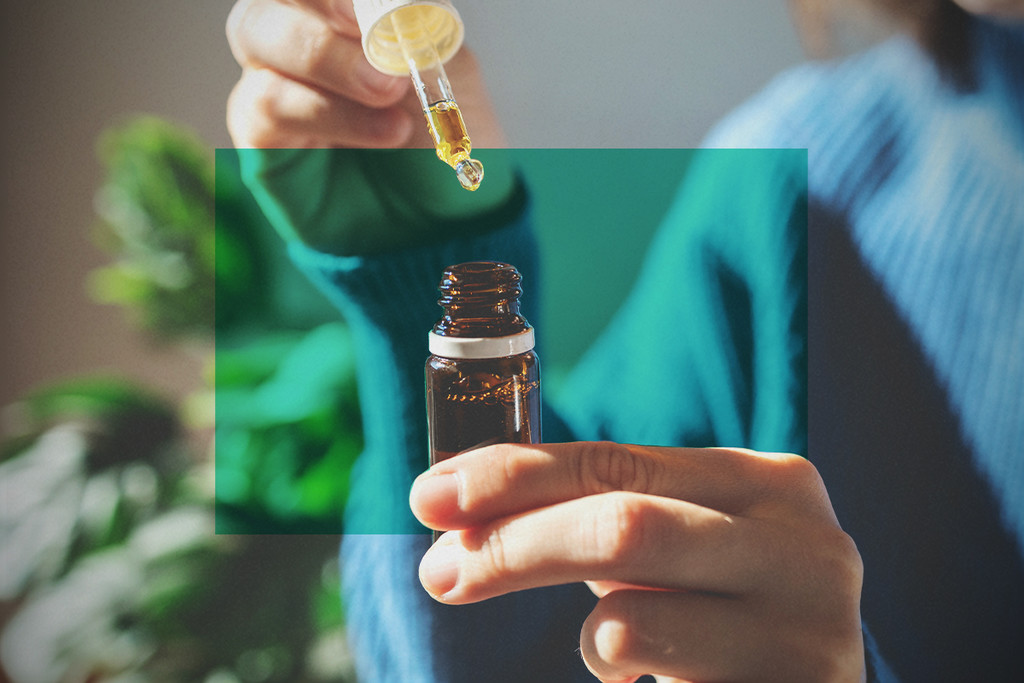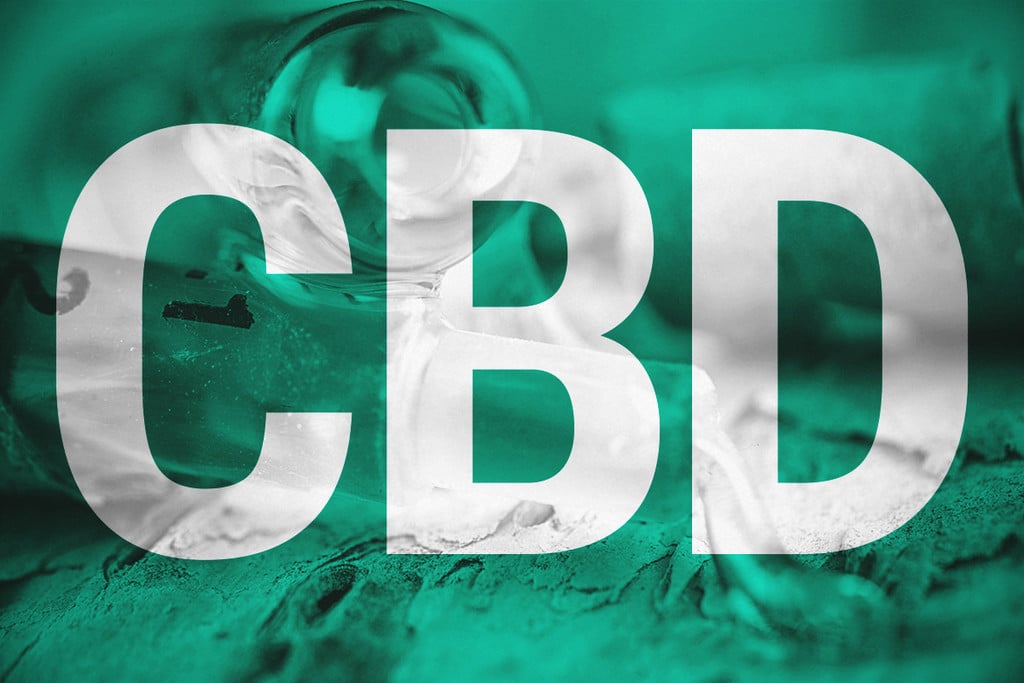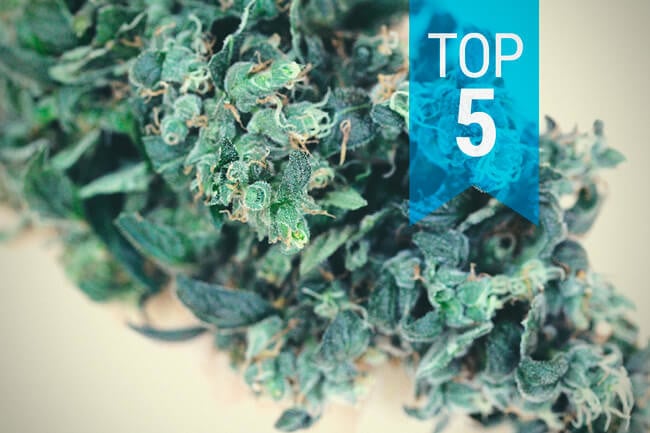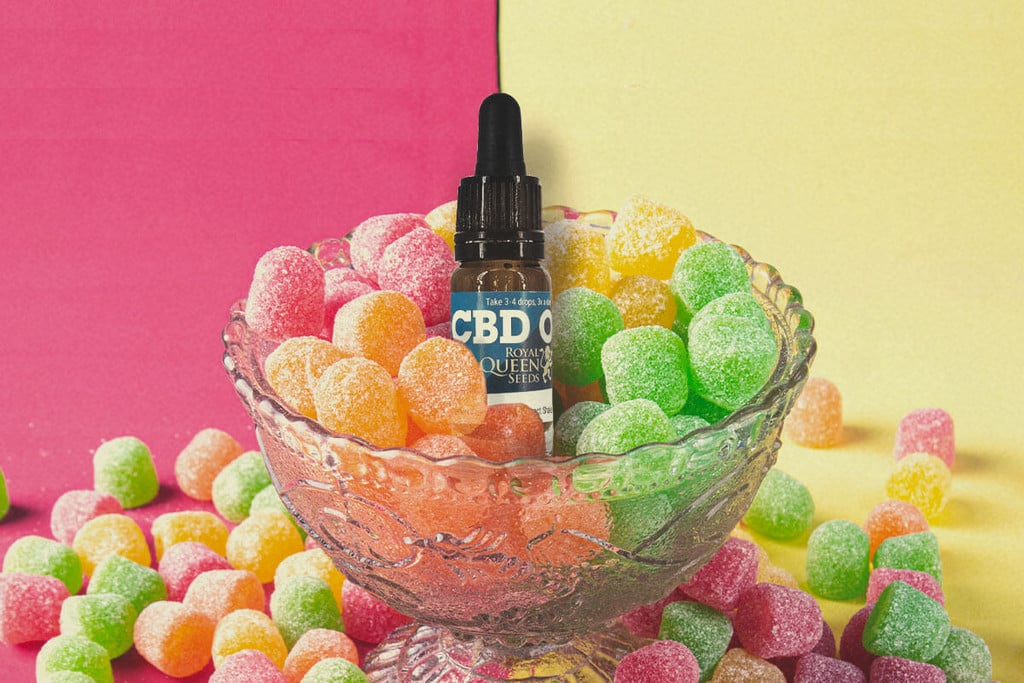.

Is CBD Oil Safe?
CBD companies promise countless benefits, but just how safe are CBD products? Keep reading to find out everything we know (and don't) about CBD's safety, legality, and how it affects the human body.
The CBD boom has made headlines all across the globe. Whether it's mixed into a smoothie, taken as an oral tincture, or consumed in the form of chewable gummies, CBD is believed to deliver all kinds of wellness benefits. But when it comes to the safety of cannabidiol and understanding how it acts in the human body, we know far less than CBD retailers like to lead on.
In what follows, we explore the current information on CBD’s safety profile, mechanism of action, legality, and more.
Contents:
Is CBD Safe?
CBD is often marketed as a safe, non-toxic compound. Indeed, to date, most research suggests that CBD is very well-tolerated by most people. On the off chance that it might cause adverse effects, these tend to be fairly mild, and include dry mouth and diarrhoea, among others. CBD may also compete for metabolism with blood thinners or other medications in the liver, and may therefore affect the half-life of these drugs—which is a very serious relationship for consumers and health professionals to consider.
At the same time, there is still a lot we don't know about CBD and the mechanisms via which it acts in the body. Hence, more research is needed to help us understand how it works before we can make informed conclusions about CBD’s safety.
A growing interest in cannabinoids and their potential benefits, as well as changes to cannabis laws in various regions of the world, has given rise to a larger body of research aimed at understanding cannabis and its major active ingredients. CBD, in particular, has been the focus of numerous preclinical and clinical studies. Here's what these studies[1] have taught us so far regarding CBD's safety:
- Animal studies and clinical trials suggest that CBD is generally well-tolerated and safe.
- CBD can cause side effects. The most common include tiredness, diarrhoea, and weight/appetite changes. Other side effects may include irritability and dry mouth.
- CBD may compete for metabolism by liver enzymes and thereby affect the metabolism and half-life of prescription medications. More research into this relationship is needed to fully understand the safety of CBD and cross-drug interactions.
Is Cannabidiol Addictive?
Research shows that cannabis can be habit-forming and cause dependence in some users. CBD, however, doesn't show the same addiction potential. To date, there are no studies to suggest that CBD-rich cannabis or CBD supplements can be addictive. In fact, CBD was deemed to show no abuse potential by the World Health Organisation, and was subsequently removed from various controlled substance lists (most notably that of the World Anti-Doping Agency).
Moreover, some studies have made headlines over the past few years suggesting that CBD may actually help individuals overcome addictions to various substances, including alcohol and nicotine. While these results are certainly interesting, they are far from conclusive, and much more research is needed to understand how CBD (and cannabis in general) may affect a person's addiction to another substance.
Can You Build a Tolerance to CBD?
The science surrounding CBD tolerance isn't very clear. Many sources claim that it doesn't build a tolerance, many others claim that it might, and some even claim that CBD can cause a "reverse tolerance"—meaning you'll need to take less CBD over time than when you first started taking it to achieve the same effect. The truth, at least based on current research, is that we simply don't know.
Few scientific studies have exclusively explored CBD's tolerance-forming potential. And while most of the research exploring CBD under other pretexts claims that it is well-tolerated, that isn't enough to conclude whether or not you can build a tolerance to it. Unfortunately, CBD has a complex mechanism of action that we still don't fully understand, though the fact that it doesn't bind to CB1 or CB2 receptors suggests that CBD doesn't cause tolerance in the same way that THC does. In response to regular exposure to THC, cells will try to regulate themselves by reducing the number of CB1 receptors available for THC to bind with in the future.
Meanwhile, other sources suggest that CBD might cause a "functional tolerance". That is, your body might become less responsive to the effects of CBD over time, and you may end up taking increasingly higher doses in response to that. This seems very plausible, seeing as most substances (including coffee, alcohol, and many more) have this kind of effect. Given current research, however, we simply can't say for certain whether or not CBD is tolerance-building.
![]()
How Is CBD Used?
CBD is commonly used in the form of CBD oil or liquid tinctures (which are partially absorbed via mucous membranes in the mouth and via the digestive tract), in the form of gummies or other infused edibles (which are processed by the digestive tract and liver), or as topicals that act directly on receptors in the skin. Vaping CBD is also growing in popularity.
Unlike THC, CBD doesn't seem to have a high affinity for the main cannabinoid receptors CB1 and CB2. Instead, it is believed to act on a combination of:
- Serotonin receptors (5-HT1A)
- Capsaicin receptors (TRPV1)
- Gamma receptors (PPAR)
- Orphan receptors (GPR55)
CBD is also believed to work as a reuptake inhibitor for the endogenous cannabinoids 2AG and AEA[2], meaning it can interrupt their metabolism and temporarily increase concentrations in the brain.
Such diverse mechanisms of action only contribute to the complexity of making broad statements about CBD’s relationship with the body, and its overall safety. Furthermore, different methods of administration may provide distinct outcomes, as each has a different bioavailability, onset and duration of effects, and unique ingredients.
Is CBD Legal?
The popularity of CBD has risen dramatically in recent years, and in many regions around the world legislative powers have been playing catch-up to properly regulate this burgeoning industry. Obviously, CBD legislation varies from one region to another. Below we summarise some of the biggest legislative moves regarding CBD's legality in Europe and other parts of the world.
| 2018 |
The WHO concluded[3] that CBD is effective in the treatment of refractory epilepsy (particularly in children) in certain cases, and has no potential for abuse or dependence, and should therefore not be controlled in the same manner as THC. The same year, the 2018 US Farm Bill addressed grey areas[4] regarding the legality of CBD in the United States. The bill confirmed that hemp (cannabis plants with less than 0.3% THC) and hemp-derived products were legal, though it maintained THC as a Schedule I controlled substance under federal law. |
| 2020 | The European Court of Justice stated that CBD is not considered a narcotic drug under European drug laws[5] and could be qualified as a "novel food" given that the form in which it is sold meets EU food safety regulations. |
| 2018 |
The WHO concluded[3] that CBD is effective in the treatment of refractory epilepsy (particularly in children) in certain cases, and has no potential for abuse or dependence, and should therefore not be controlled in the same manner as THC. The same year, the 2018 US Farm Bill addressed grey areas[4] regarding the legality of CBD in the United States. The bill confirmed that hemp (cannabis plants with less than 0.3% THC) and hemp-derived products were legal, though it maintained THC as a Schedule I controlled substance under federal law. |
| 2020 |
The European Court of Justice stated that CBD is not considered a narcotic drug under European drug laws[5] and could be qualified as a "novel food" given that the form in which it is sold meets EU food safety regulations. |
What About CBD in Sport?
By the look of it, CBD has a wide variety of potential applications. And while many of these haven't been confirmed or are still being studied, a growing number of athletes (both professional and amateur) have begun using CBD as part of their diet and supplementary routine to help with recovery and training. Since CBD is derived from cannabis, a prohibited substance under world anti-doping laws, the use of CBD by professional athletes quickly raised discussions among anti-doping agencies.
As of 2018, the World Anti-Doping Agency has removed CBD from its list of prohibited substances[6]. However, other cannabinoids, such as THC, remain prohibited. Since CBD products may contain trace amounts of THC that could potentially trigger a positive drug test, anti-doping bodies such as USADA and UKAD have warned about the risks of professional athletes using CBD.
What Are the Biggest Concerns Regarding the Safety of CBD?
Many legislative powers have concluded that CBD is generally safe, regardless of the fact that we still don't completely understand how it acts in the body. Nonetheless, there are still some real concerns facing CBD. These include:
⚖️ Reliability
While CBD is often marketed as a wellness supplement, most CBD products aren't assessed as rigorously as other supplements or medications. That's usually because legislative powers don't recognise CBD as a medicine or supplement in the first place. In the US, for example, the only CBD medication approved by the FDA is Epidiolex, which can be prescribed to treat rare forms of treatment-resistant epilepsy. In the EU, on the other hand, CBD is considered a "novel food", and therefore isn't tested or regulated in the same way as medications or supplements, and isn't accepted for therapeutic use.
⚗️ Chemical complexity
Cannabis is an extremely complex plant that contains close to 500 different chemical compounds. Each has unique and complex ways of interacting with the body, as well as the potential to synergise with other compounds and produce distinct reactions (a theory known as the entourage effect). CBD products may contain varying concentrations of these compounds, which only adds to the difficulty of understanding the way these products may act in the body.
? Drug testing
Moreover, the fact that CBD products may contain trace amounts of THC and other cannabinoids can prove problematic for anyone subject to drug testing. Most legal CBD products should not contain enough THC to trigger a positive result, but it is not unheard of.
? Black market products
Black market CBD products are sold in various parts of the world. These products are subject to zero testing or quality control, and therefore we never recommend buying CBD on the street or from any other unreliable source.
CBD and Children: Observing the Current Body of Research
CBD is often touted as some kind of cure-all, including the use of CBD for children. When assessing whether any drug is safe to use, especially by children, it’s important to cut through the rhetoric and take an honest look at the research.
-
Treatment-Resistant Epilepsy: The Case of Charlotte Figi
Especially in relation to CBD for kids, the case study of Charlotte Figi comes up a lot, and with good reason. Charlotte Figi suffered from Dravet syndrome, a form of severe epilepsy, and experienced around 300 seizures a week. After trying countless medicines to little effect, it was discovered that a CBD-rich extract—dubbed Charlotte’s Web—brought her seizures down to 0–1 a week, and allowed for all other medications to be stopped. But this is just one case.
In 2018, Lattanzi et al. conducted a review and meta-analysis[7] into CBD’s efficacy in relation to Dravet syndrome and Lennox–Gastaut syndrome. In total, it looked into the cases of 550 individual participants. They noted the particular potential CBD may have in cases that prove otherwise treatment-resistant.
In 2019, Silvestro et al. conducted similar research[8], but specifically on infants, children, and teenagers with treatment-resistant epilepsy. Results noted statistically significant differences between the group given CBD and those in the control. Likewise, it noted few adverse effects.
Is CBD Safe for Children?
Is CBD safe for kids? This question is difficult to properly answer, because we just don’t know enough about CBD yet.
-
Can You Give CBD to Children?
In relation to children, it’s always best to exercise caution. For instance, the FDA advises against the use of CBD by pregnant or breastfeeding women because its effects on infants are simply unknown. Likewise, giving it directly to infants and children has potential unknown effects.
On the flip side, Epidiolex, a CBD-based pharmaceutical, is now authorised in numerous countries for use in children with severe, drug-resistant epilepsy. Therefore, it may be that there are some instances wherein CBD might be suitable for children.
It’s an incredibly difficult conversation. We are not able to recommend that anyone give CBD to children, as the evidence surrounding it is inconclusive, and its safety profile is not yet determined.
That being said, ultimately the decision is up to the parent or guardian, and assessing the situation objectively is critical. If a child has a severe, treatment-resistant condition, it may be worth talking to their doctor about CBD.
What's the Future for CBD?
The demand for CBD has grown exponentially in recent years. And while there are clear challenges to properly regulating CBD and ensuring the safety and reliability of all CBD products, we will likely see these challenges addressed as our understanding of this complex cannabinoid develops.
- https://www.ncbi.nlm.nih.gov/pmc/articles/PMC5569602/
- https://pubmed.ncbi.nlm.nih.gov/27790143/
- https://www.unodc.org/documents/commissions/CND/CND_Sessions/CND_62Reconvened/ECN72020CRP19V2006823.pdf
- https://www.natlawreview.com/article/2018-farm-bill-legalizes-hemp-obstacles-to-sale-cbd-products-remain
- https://www.emcdda.europa.eu/news/2020/cannabidiol-cbd-is-not-considered-a-narcotic-drug-under-european-law_en
- https://www.washingtonpost.com/news/early-lead/wp/2017/10/05/while-marijuana-remains-banned-wada-reverses-course-on-hemp-derived-compound-cbd/
- Efficacy and Safety of Cannabidiol in Epilepsy: A Systematic Review and Meta-Analysis https://pubmed.ncbi.nlm.nih.gov
- Use of Cannabidiol in the Treatment of Epilepsy: Efficacy and Security in Clinical Trials https://www.ncbi.nlm.nih.gov





































